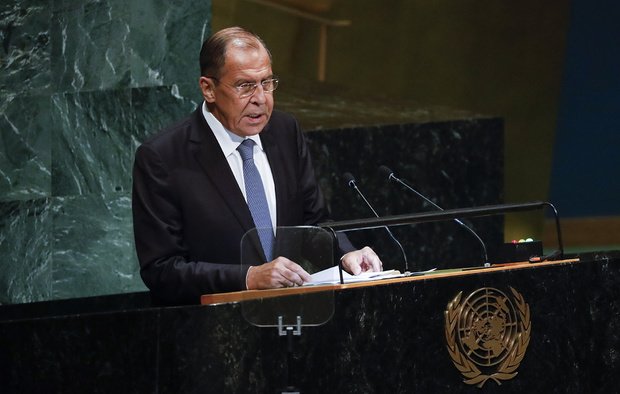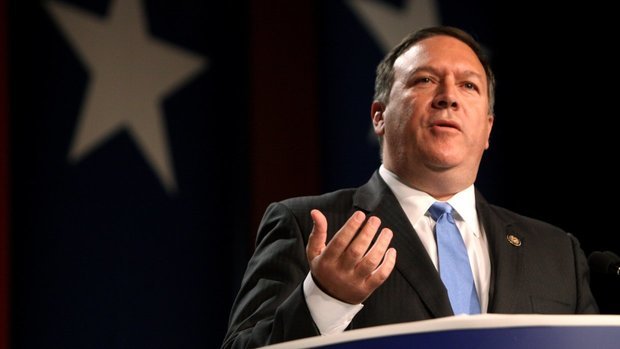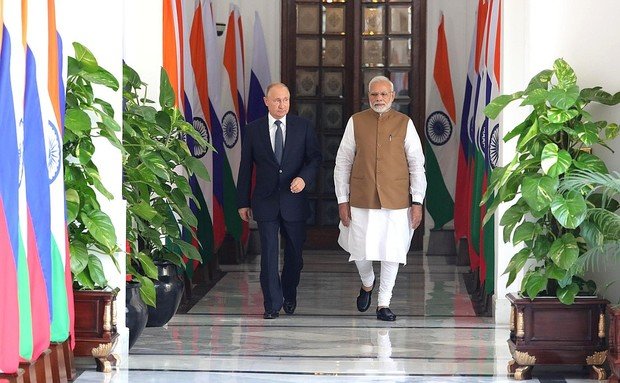International panorama: Trump’s criticism of 'inefficient' UN, Chinese reply to duties and S-400 for India
Former diplomat Yulduz Khaliullin about the absence of stability in the world. Series 20
Soviet and Russian diplomat Yulduz Khaliullin goes on analysing events taking place in Russia and around the world. In a column written for Realnoe Vremya, our expert shares his opinion about the UN General Assembly, the trade war between China and the USA and Putin's visit to New Delhi.
At the UN
Political debates at the next, 73rd UN General Assembly has been at the centre of attention of the media in the last weeks. About 90 leaders of countries and 40 prime ministers took part in it. Reviewers notice that three major political leaders were absent at this UN session – PRC Chairman Xi Jinping, FRG Chancellor Angela Merkel and Russian President Vladimir Putin.
Minister of Foreign Affairs Sergey Lavrov who delivered a speech in front of the delegates on 28 September represented our country. The head of the Russian Ministry Foreign Affairs ran a marathon consisting of 30-40 events at the UN, including talks with presidents, prime ministers and some countries' foreign ministers. The UN is the most comfortable place for such political and bilateral talks. There isn't another such a place in the world yet.
As the USA chairs the UN Security Council, US President Donald Trump was one of the first people to give a speech at the forum. He thought it's necessary to pay attention to the non-proliferation of weapons of mass destruction, especially focusing on Iran (in an anti-Iranian way, as usual). Lavrov supported the United States in other issues of the approach to the non-proliferation of nuclear weapons.
Experts including from the USA noted that Trump severely criticised the UN's work again considering it had a small impact and didn't help to adequately react to challenges of our time.

Beijing under US pressure
The world media carefully follow the trade war between two superpowers – the USA and the PRC – that Washington declared as early as three months ago. Now it includes huge duties on Chinese goods at over $300bn. At the end of September, Chinese-US talks on trade and economic problems were to begin in Washington. However, Vice Premier of China's State Council Liu He claimed the talks had a small impact amid such pressure and refused to go to the USA.
Some observers consider the economic pressure of the USA on China makes Beijing have more active cooperation with Moscow on the international stage, what recent joint military exercise in the Pacific Ocean and agreement on sale of certain types of missiles to China prove.
US State Secretary Mike Pompeo has recently said that China is the major danger to the United States. He defined three key areas. Firstly, the Chinese go on purchasing US high technologies. Secondly, they're creating a big deficit of bilateral trade exceeding $0,5tr. Thirdly, China is making attempts to switch to national currencies in commercial settlements.

In general, the PRC is trying to create a new world trade system including new active areas. Washington doesn't like it all. At the same time, Beijing urges the Americans to follow the general rules of the World Trade Organization accepted by the international community.
In general, the Chinese could have a more active reply, particularly demand the USA to urgently pay for US debt bonds at $1tr they purchased. The PRC isn't raising this issue yet. It's hard to foresee consequences of such a step for the world economy, including the Chinese.
In this conditions, it seems to me the Chinese will create a big group of countries around themselves in the short run to switch to settling in the national currency with them, thus protecting world trade from the US currency system, including in the World Bank and the International Currency Fund. But it's not easy to achieve it, it can take about ten years. In addition, China and the European Union can't push the powerful US economy to the sidelines of global relations.
Putin in India
On Thursday, Russia's President Vladimir Putin arrived in India. A wide range of issues – political, economic, military – has been discussed at Russian-Indian top meetings taking place in Moscow or Delhi (in turn) in the last 20 years. The population of India totals over 1bn people, the average age is about 35 years, there is a middle class – 300m people (twice more than all population of Russia). Private investments in the country's economy amounted to about $200m.

During the summit, the sides agreed on supplies of Russian missiles (particularly S-400 systems) at approximately $5bn. Russian President Vladimir Putin and Indian Prime Minister Narendra Modi also raised the issues of expanding trade between the countries. The talks took place in Chowmahalla Palace. We can note that despite the pressure of the USA in the purchase of military technologies from other countries, India keeps covering its own path and makes decisions it considers necessary. Delhi thinks it has the right to allow any steps in military cooperation that aren't forbidden by the UN Security Council.